Chinese legal expert: 'Legal reunification' with Taiwan the best solution
Zong Haichao explains why "legal reunification" - peaceful reunification through legal means - is a possible alternative to military reunification or political reunification. It will serve the common interests of the CCP in mainland China and Taiwan's ruling party DPP and opposition KMT, even if it may not be the optimal route in the eyes of each party. However, to make this option workable, the CCP needs to first achieve rule of law, democratisation and modernisation transformation. A possible scenario in the future?
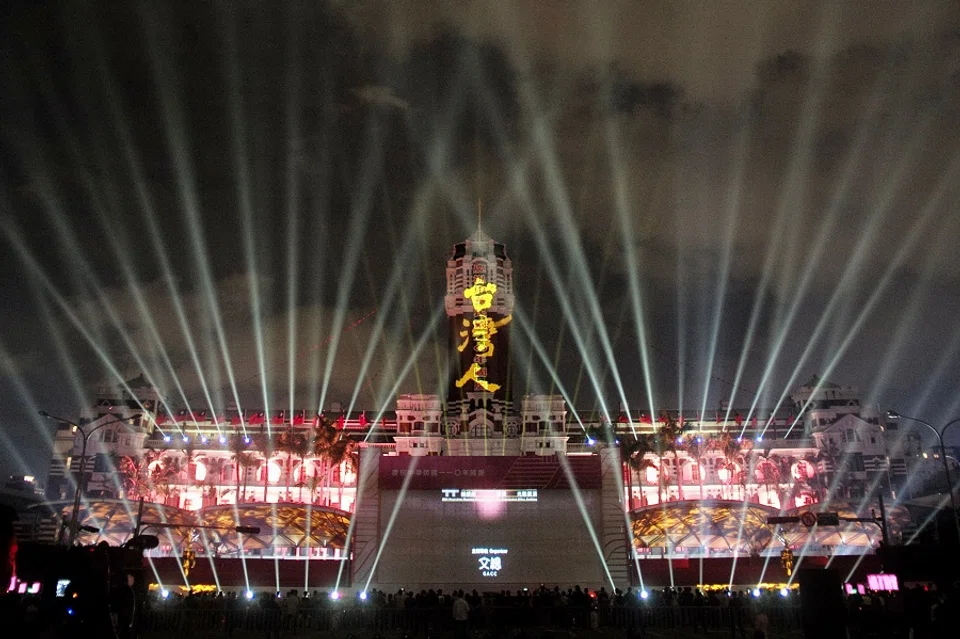
On 25 September, Eric Chu was named the chairman of Taiwan's main opposition party, the Kuomintang (KMT). The very next day, the mainland's Chinese Communist Party (CCP) General Secretary Xi Jinping sent Chu a congratulatory letter in a friendly exchange between the KMT and the CCP.
Following his early assumption of duty on 5 October as the leader of the KMT, when will Chu meet with Xi? Will tense cross-strait relations ease? More importantly, will the two ruling parties on both sides of the Taiwan Strait engage in direct dialogue and dial down escalating tensions in the Taiwan Strait? These questions would undoubtedly be the focus of cross-strait relations moving forward.
Chasms likely to remain
The goal of the CCP is clear: to seek peaceful reunification without ruling out the use of force. The goal of Taiwan's ruling Democratic Progressive Party (DPP) is also clear: to achieve Taiwan independence in a peaceful manner with the top priority of avoiding war. But the KMT's goal is unclear - it may continue with its "Three Nos" policy: no unification, no independence and no use of force.
Since both the KMT and CCP are on the same page in terms of not wanting independence, it seems that both party heads can easily arrange for a meeting. But the KMT is the opposition party in Taiwan and it would do them no good to meet with the CCP too soon.
Conversely, the CCP and the DPP have completely different party agendas and lack common ground, which makes for difficult interactions. This is the reason why tensions between both sides of the Taiwan Strait have been escalating in recent years to the point of imminent confrontation. It seems that a meeting between the party heads of the CCP and the DPP is highly unlikely.
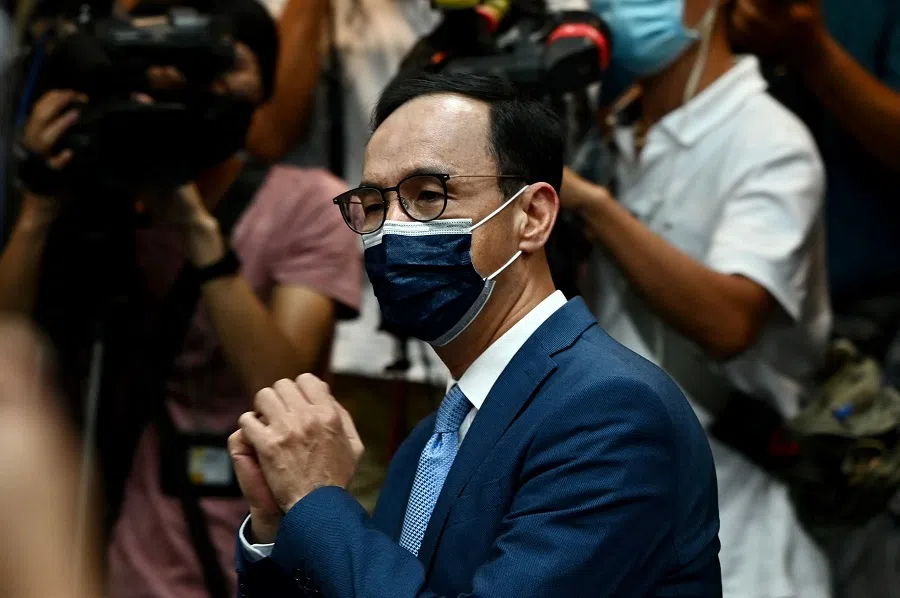
And this is likely the future norm for the three parties on both sides of the Taiwan Strait. However, following the installation of a new KMT chairman, can all three parties each take a step back to find the best solution that meets the needs of all parties and people on both sides of the Taiwan Strait through discussion and negotiation? This would then solve the dilemma between "military reunification" and "political reunification". It may also foster benign interactions between the three political parties on both sides of the Taiwan Strait, which may help to fulfil the goals of each political party despite some of them seeming conflicting and in opposition.
Unless left with no choice, a reunification by force should never happen.
How about 'legal reunification'?
In this sense, a "legal reunification" - peaceful reunification through legal means - seems to be the best solution that is most aligned with the common interests of the political parties concerned and people on both sides of the Taiwan Strait, although it may not be in the best interests of each political party.
One, national reunification is the CCP's historical mission. Having attained moderate affluence in 2020, the CCP's mission for the next decades is certainly to achieve national reunification. Only after national reunification has been achieved can China's true rise begin, higher national goals be set, and the great rejuvenation of the Chinese civilisation be realised. Only then can it be said that China is in its prime under the rule of the CCP.
Yet, how can national reunification be achieved? Through military reunification or political reunification? This is the dilemma facing the CCP.
Political reunification is often seen as the best option for peaceful reunification. But this is the best option for the CCP, not the DPP.
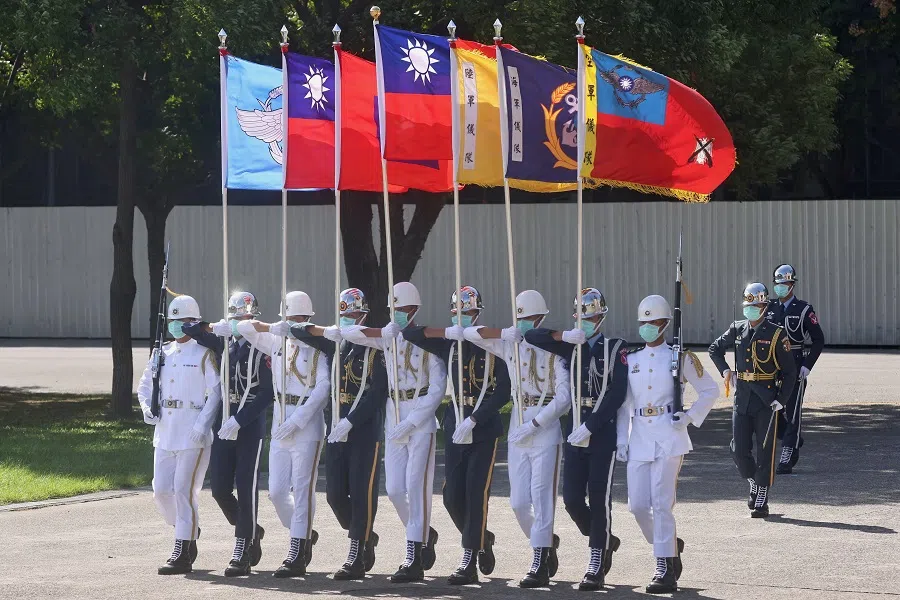
Two, the limitations of traditional reunification methods such as military and political reunification. In the relations between the CCP, DPP and KMT on both sides of the Taiwan Strait, it is expected that the CCP, which has an absolute advantage, does not rule out the possibility of reunification by force. But this is the last resort as it poses the most risks and is most destructive. Unless left with no choice, a reunification by force should never happen.
Political reunification is often seen as the best option for peaceful reunification. But this is the best option for the CCP, not the DPP. So what is the best option for the DPP? Peaceful independence. That is to say, there exists two opposing options of equal value on both sides of the Taiwan Strait. Only "peace" is the shared option between both parties. The mainland Chinese political party and people must seriously consider and remember this point.
Under such circumstances, how is peaceful reunification to be achieved? And how is political reunification to be implemented? Is it solely by dangling carrots in front of the Taiwanese? Or by offering goodwill and buying more products such as bananas, durians, and confectionery? Facts have proven that unless political reunification can be concretised and put into action, it would ultimately be an empty slogan.
Three, legal reunification is a modern and realistic means of peaceful reunification, and law is a universal tool of modern politics and a universal language of modern society. Respecting rules and abiding by the law is a common practice and basic ethical tenet of modern society. Thus, reunification by law is the only realistic means by which both sides of the Taiwan Strait can achieve national reunification without plunging into war and chaos.
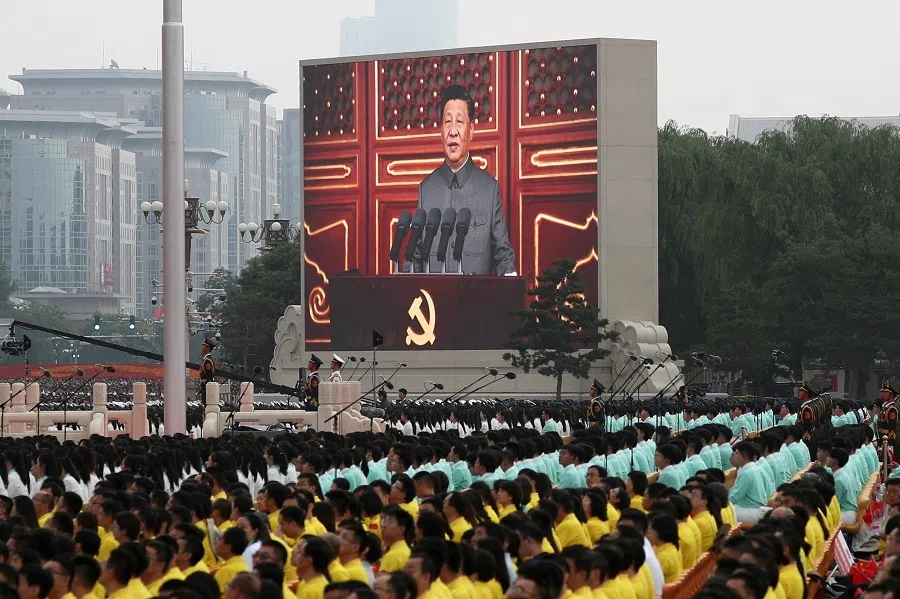
As mentioned above, modern societies and countries are ruled by law, and political language is the language of law. Thinking, regulations, protection and authority based on law are deeply ingrained in the political and public mindset of the international community. Besides, while rule of law is a principle and belief, the law is an effective tool to present demands, reduce differences, strengthen and protect interests, and make sure that those involved get what they want, that they are satisfied with their situation, and their interests are met.
The problem is, the condition for legal reunification is that the CCP has to achieve rule of law, democratisation and modernisation transformation.
Given mainland China's emphasis on rule of law, perhaps legal reunification could be a third option besides military or political reunification, or at least a more modern and realistic method under traditional political reunification.
Four, the feasibility and conditions for legal reunification. Freedom, democracy and rule of law are generally accepted and respected by the international community, and are a lauded point of pride for Taiwan's political parties. So, if the ruling party in mainland China takes up the banner of abiding by the law and achieves reunification through legal means, that would give Taiwan's political parties and the international community no reason to refuse or object, which makes legal reunification the most feasible option. The problem is, the condition for legal reunification is that the CCP has to achieve rule of law, democratisation and modernisation transformation.
The CCP is clearly stepping up its shift towards rule of law, so that people believe in the law. This is seen in reiterating the direction of governance by the law, setting up the Central Commission for Discipline Inspection (CCDI), and making its party regulations legally binding.
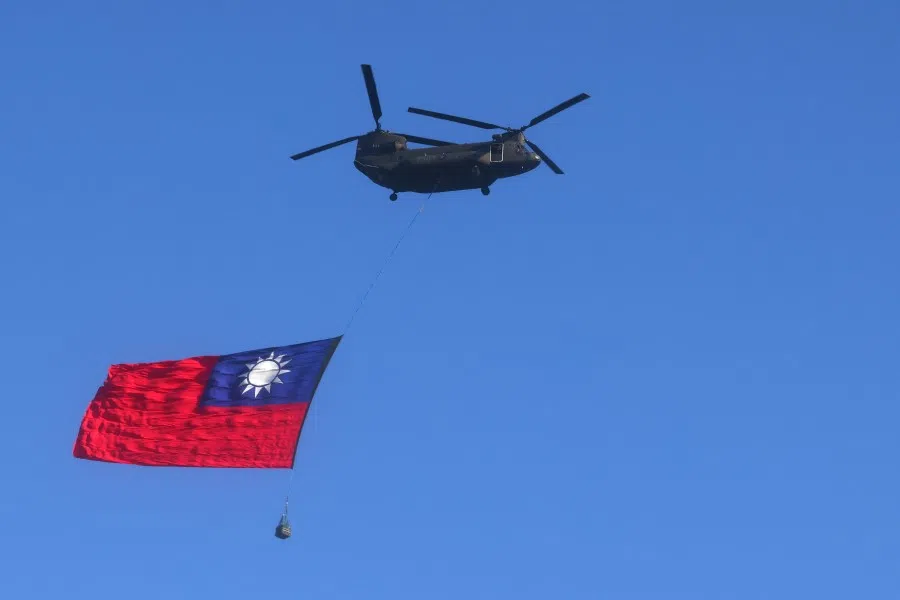
Compared to internal rule of law, external rule of law is clearly insufficient. And to enact a shift towards external rule of law, it would take a landmark incident to establish credibility, as statesman Shang Yang did for the state of Qin during the Warring States period, by following through on a promise to highly reward the one who could perform the single act of moving a pole.
Getting people to believe in the law is in line with the best interests of the political parties, governments, and peoples on both sides of the Taiwan Strait, and also a condition for legal reunification.
Impetus for the CCP to shift towards democracy
When it comes to a shift towards democracy, there is not much pressure from the mainland Chinese for the CCP to do so. However, such a shift is necessary for the following three reasons.
One: peaceful reunification with Taiwan. Taiwan has implemented the rule of law and democracy, and one major legal issue in peaceful reunification is that mainland China's constitution - the only one for the CCP - is not compatible with the political parties in Taiwan, leaving no room for the latter's existence. So, making changes to the constitution to shift towards democracy and the rule of law is a necessary condition for peaceful reunification with Taiwan.
Two: avoiding the internal chaos and civil wars as seen over the ages. Through China's history, apart from the ancient kings Yao, Shun, and Yu who named the best-qualified persons instead of their sons as their successor, and Zhao Kuangyin who became Emperor Taizu of the Song dynasty following the coup at Chen Bridge, changes in dynasties were always achieved through bloody revolutions and wars. The casualties, economic losses, and damage to society, culture and civilisation caused by internal wars and strife are severe.
If China wants to lead world civilisations, first it has to be the champion among world civilisations.
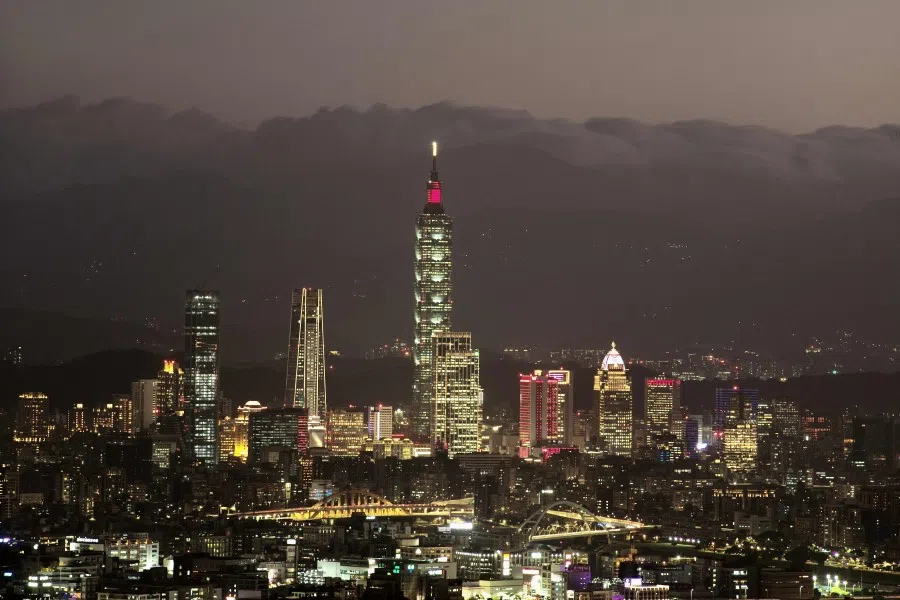
But how does one govern the country after winning it? How does one avoid the historical pattern of dynastic change? Chairman Mao's answer: implement democracy and let the people oversee the government, in order to break the pattern of history and bring about long-term stability.
Three: being aligned with world civilisations is the way to lead them. Modern civilisations in today's world are made up of core values like democracy, science, freedom, rule of law, ethics and human rights. In sports competitions, in order to become world champions, athletes have to first understand, learn, obey and use the rules. The same applies to governance. In the competition for governance, China's ruling party has to learn and absorb the politics, civilised rule of law, and democratic governance of the West. If China wants to lead world civilisations, first it has to be the champion among world civilisations.
In short, over the next ten years, achieving peaceful reunification through legal means - legal reunification - should be the third option, besides military and political reunification. Alternatively, political reunification should be a means of achieving peaceful reunification.
Since Taiwan has made its rule of law, democratisation and modernisation transformation, it is necessary for the CCP as the leader of reunification to also realise its own transformation. That way, the door to legal reunification will open, and serve the political parties on both sides of the Taiwan Strait in the sacred mission of peaceful reunification.
Related: Beijing bans Taiwan fruit imports: Impoverishing Taiwan to achieve reunification? | Peaceful or armed reunification: Are top Chinese advisers divided over Taiwan? | The median line of the Taiwan Strait: No longer a boundary for mainland China | Taiwan's unequal status in US-Taiwan trade talks | 'Afghanistan today, Taiwan tomorrow'? | Will the Taiwan Strait issue be internationalised under Biden?
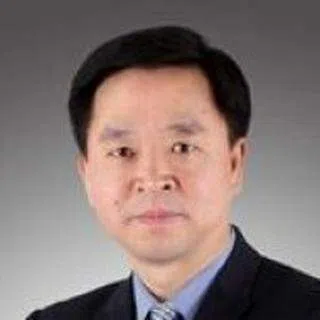

![[Big read] When the Arctic opens, what happens to Singapore?](https://cassette.sphdigital.com.sg/image/thinkchina/da65edebca34645c711c55e83e9877109b3c53847ebb1305573974651df1d13a)


